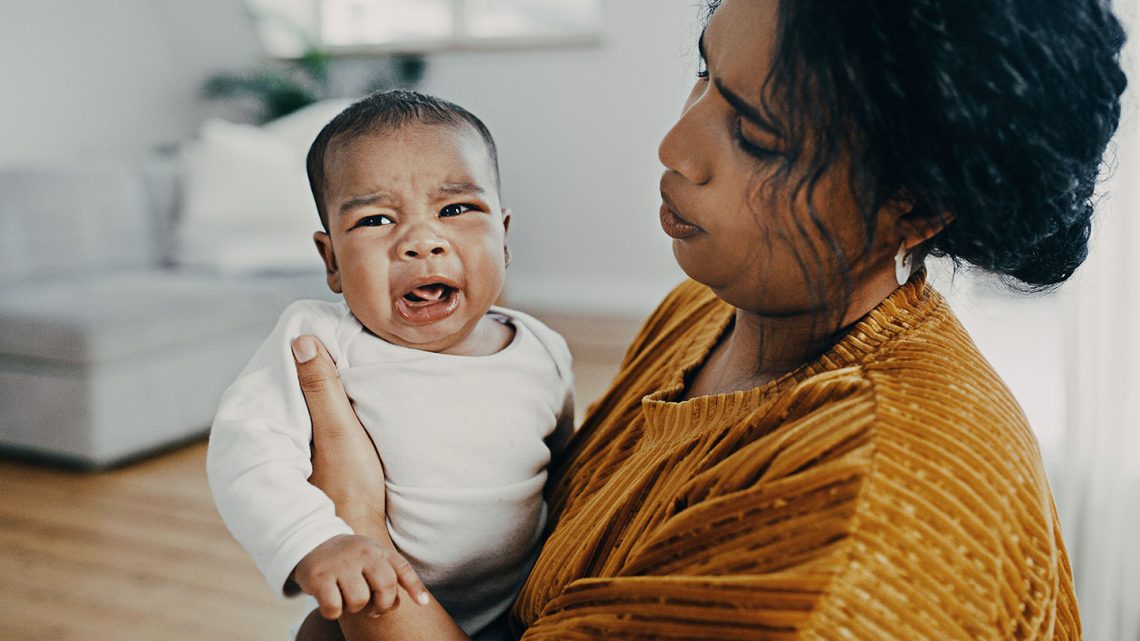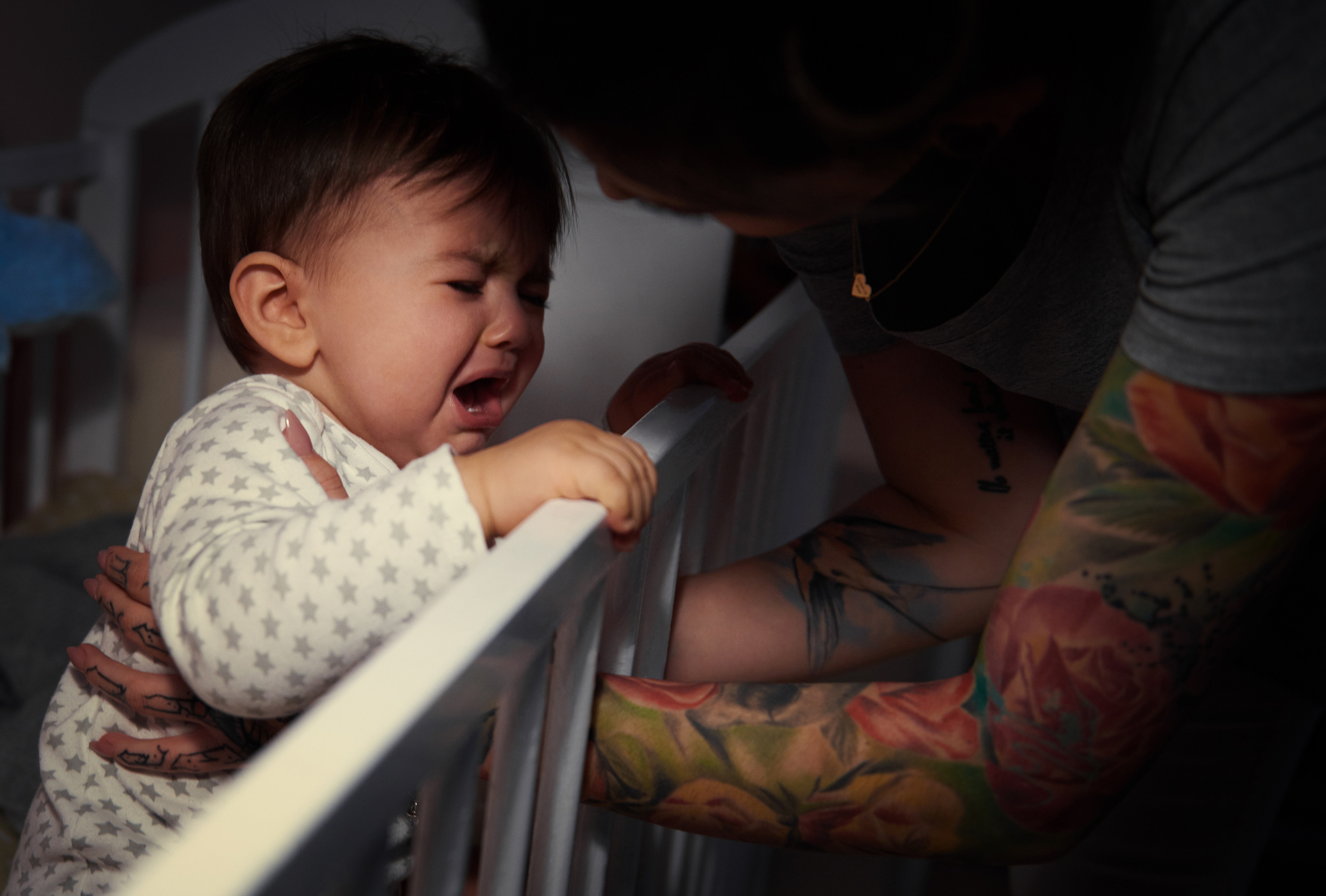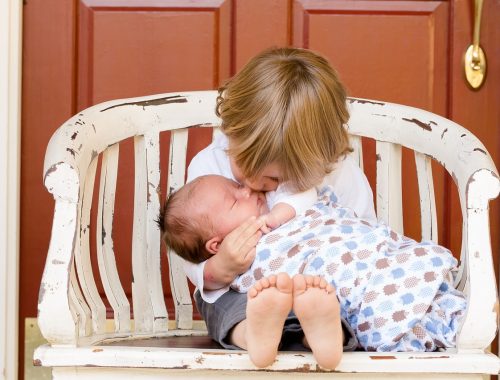
Baby Won’t Stop Crying? Here’s What to Do to Help
Let’s be honest: No matter how much we might treasure the fact of being mothers, there are times when we yearn for a long vacation, away from our babies’ constant cries, don’t we?
While doctors say it’s completely normal for a newborn baby top cry 2-3 hours per day, sometimes, as mothers, we can find it very frustrating. If you want to put an end to this “misery”, you have to first understand why your baby is crying and then address the specific issue. So, here’s a guide onhat to do when babies cry… (too much!)
Check the Baby’s Basic Needs:

Checking for the baby’s basic needs is an important first step if the baby is crying all the time. Babies often cry to communicate their needs, so ensuring that their basic needs are met can help address their discomfort and reduce crying. Here are some basic needs to check:
Hunger: Make sure the baby is well-fed and not hungry. Offer a feeding if it’s been a while since their last meal. Hunger is a common reason for a baby’s crying.
Diaper: Check if the baby needs a diaper change. A wet or soiled diaper can cause discomfort and lead to crying.
Sleep: Assess if the baby is tired and in need of sleep. Overtiredness can make babies fussy and more prone to crying. Create a calm and soothing environment to help them settle for sleep.
Temperature: Check if the baby is too hot or too cold. Dress them appropriately for the ambient temperature and adjust their clothing or bedding as needed.
Burping

Baby’s excessive crying can sometimes be attributed to a burping problem. When babies feed, they tend to swallow air along with their milk or formula, which can lead to discomfort and trapped gas in their stomach. Burping helps release the trapped air and can provide relief to the baby. If the baby is not burped adequately or if they have difficulty burping, it can contribute to their fussiness and crying.
Here are some tips to address a potential burping problem:
Burping during and after feeding: Take breaks during feeding to burp the baby. This can be done by holding the baby upright against your shoulder or sitting them upright on your lap and gently patting or rubbing their back. Burping after each feeding can help prevent or alleviate gas-related discomfort.
Experiment with burping positions: Different babies may respond better to different burping positions. Aside from the traditional over-the-shoulder position, you can try sitting the baby on your lap with one hand supporting their chin and the other hand patting their back, or laying them face-down across your lap while supporting their head and gently rubbing their back.
Gentle movements: While burping, you can incorporate gentle movements like rocking or swaying, as this can help stimulate burping and provide comfort to the baby.
Consider feeding techniques: If you bottle-feed, ensure that the baby is not taking in excess air by using bottles with anti-colic systems or angled bottle nipples. If you breastfeed, pay attention to the baby’s latch and positioning to minimize air intake.
Consult with a healthcare professional: If you’ve tried various burping techniques and the baby continues to cry excessively or shows signs of discomfort, it’s advisable to seek guidance from a healthcare professional. They can assess the baby’s overall health and provide further advice or recommend additional strategies to address the issue.
Illness or Discomfort

If a baby is crying all the time, it’s important to consider the possibility of illness or discomfort. Crying is one of the primary ways babies communicate their needs and express any discomfort they may be experiencing. Here are some common reasons why a baby may cry due to illness or discomfort:
Illness: Babies can cry more than usual when they are unwell. Common illnesses that can cause discomfort and increased crying include ear infections, respiratory infections, teething, digestive issues, or urinary tract infections. If you suspect your baby is unwell, it’s essential to consult a healthcare professional for proper diagnosis and treatment.
Diaper discomfort: Wet or soiled diapers can cause discomfort and irritation, leading to crying. Regularly check and change your baby’s diapers to ensure they are clean and dry.
Sleep issues: Babies require sufficient sleep, and lack of sleep can contribute to fussiness and crying. Overtiredness or difficulty falling asleep can cause distress. Setting a consistent sleep routine and creating a calm sleep environment can help promote better sleep for your baby.
Colic or gas: Some babies experience colic, which is characterized by prolonged periods of inconsolable crying, often occurring in the late afternoon or evening. Gas or gastrointestinal discomfort can also cause increased fussiness and crying. Gentle tummy massages, burping techniques, and ensuring proper feeding techniques can help alleviate these symptoms.
Sensory overload: Babies have developing sensory systems, and excessive stimulation from noise, bright lights, or crowded environments can overwhelm them. Providing a calm and quiet environment can help soothe an overstimulated baby.
You May Also Like

Prayer Lessons: Teaching Kids to Pray (Part 2)
2022-04-06
Preparing Your First Child for a New Baby: 7 Tips
2023-05-25

